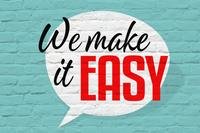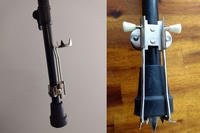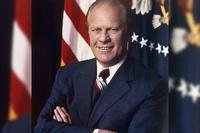If you read enough how-to books about job hunting, you'll eventually discern an apparent rule that goes something like this: "Don't mention your interests or hobbies on your resume or in job interviews. They're irrelevant to the employer."
But like many other job search rules career experts have come up with, this one is ripe to be broken in certain situations, particularly when your specific interests or hobbies could set you apart from the other candidates who are competing for the job you want.
When might you want to break the no-interests-and-hobbies rule? In situations like these:
It Creates a Bond with the Employer
A career-counseling colleague of mine has covered her walls with pictures of the good times she's had on the golf course. You can tell within seconds of stepping into her office that she's an inveterate golf junkie.
Avid golfers are in almost any workplace. So if you're a golfer yourself and you learn through your research or by mere observation that the person who's going to be interviewing you is a golfer as well, it sure can't hurt to mention your enthusiasm for the game -- on your resume, in the interview or both. After all, the employer might be seeking not only a good employee, but also a golf buddy. (Note: Should this sort of thing matter to the employer? No. Does it often matter to the employer? Sometimes.)
Your Hobby or Interest Is Known for Its Difficulty
Do you run marathons a few times a year? Are you into mountain climbing, building or restoring your own cars, or inventing gadgets and doodads?
Certain activities are quite challenging -- physically, psychologically and emotionally -- and employers will safely assume that the people pursuing those activities are naturally self-motivated, goal-oriented, persistent and unafraid of facing difficult circumstances. If your hobby or interest falls into this category, then why not mention it to the employer and reap the benefits of what he will read into your interest?
The Employer Just Has to Learn More
While you may doubt it on occasion, employers are human. They may not always have as much time, money or energy as they'd like during the hiring process, but they'd still like to get a good sense of their job candidates as people whenever possible -- and they'd still like to have something to talk about during, for example, those awkward first few minutes of the interview. You could use your unique hobby or interest as a conversation-starting icebreaker that the employer will appreciate.
Or perhaps an employer is looking at your resume and waffling about whether you deserve to be interviewed or not. Then he sees that one of your interests is "treasure hunting off the coast of Georgia." His response might well be, "What the heck? I might as well bring her in for an interview. If nothing else, I'll learn about treasure hunting."
You've just gotten your foot in the door when you might not have otherwise. And that's the whole idea, really: Giving yourself the opportunity (first on your resume and then in an interview) to land the job. If your interests or hobbies can help you secure that opportunity, then there's no good reason not to highlight them, regardless of the rules.
Want to Know More About the Military?
Be sure to get the latest news about the U.S. military, as well as critical info about how to join and all the benefits of service. Subscribe to Military.com and receive customized updates delivered straight to your inbox.











